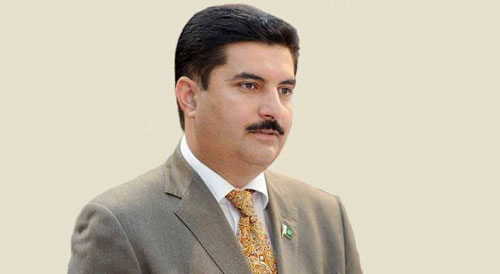Minister of State for Poverty Alleviation and Social Safety Faisal Karim Kundi on Wednesday said that the Supreme Court was supposed to deliver justice and not to arrange talks. Addressing a press confer-ence here at Circuit House, the state minister said the judiciary was there to take decisions on the basis of justice and not on the basis of family pressure.
“There was no room for recordings of private tele-phone calls of anyone in any independent state but unfortunately, it was being done in our country,” he said and demanded that the forensic investigations should be done into the matter that who was respon-sible for this illegal activity. The recent two audio leaks including one of the mother-in-law of the sit-ting Chief Justice of Pakistan (CJP) and the other of the former chief justice Saqib Nisar posed many questions on the judicial system.
Faisal Karim Kundi said that the negotiation and dialogue was a political process which was pursued by the political parties and even countries to resolve their differences and issues. He was of the view that Parliament was the right forum for the politicians to initiate dialogue among themselves for resolving issues. He said that the allies of the coalition gov-ernment had concerns regarding negotiations with PTI which were based on reality as the Pakistan Tehreek-e-Insaaf (PTI) never showed a serious atti-tude over the national issues.
He mentioned that PTI leader Asad Qaiser himself contacted representatives of Pakistan People’s Party (PPP) claiming to have the mandate of his party for talks. However, the claim was rejected by the PTI chairman who nominated other party representatives for the task, he said and added that it proved the PTI like non-serious attitude once again. He also men-tioned that in the past, around 85 cases related to Pakistan Tehreek-e-Insaaf (PTI) came before a spe-cific bench, out of which the decisions of 83 cases were given in favor of the PTI.
He said the decisions of two remaining cases were pending including one related to the record corrup-tion in the BRT project in Khyber Pakhtunkhwa which was given judicial protection. While the other case was related to the election results of the former deputy speaker of the National Assembly, on which despite of the presence of all the evidence.—INP










